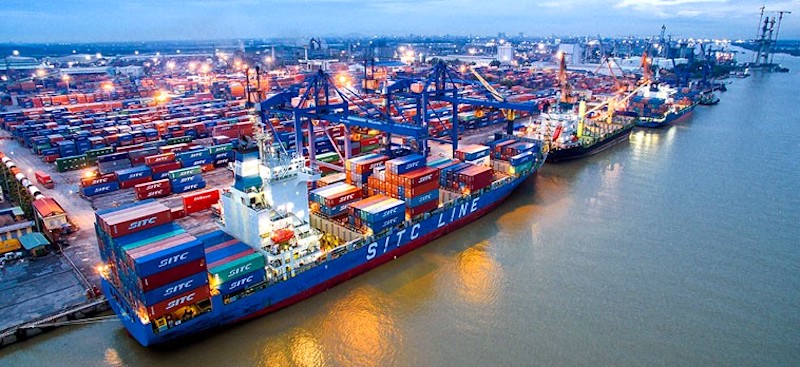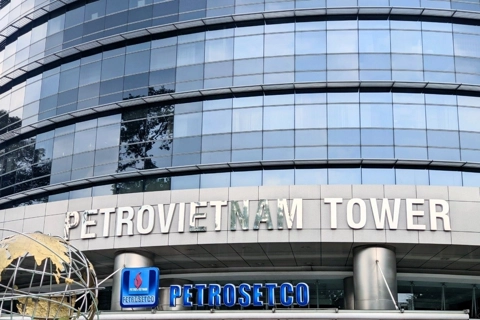Global minimum tax requires Vietnam to adopt new incentives
The global minimum corporate tax, expected to take effect in January next year, will affect large corporations' investment strategies and governments' investment policies, such as Vietnam's.
The global minimum corporate tax could impact Vietnam's competitive advantages in attracting foreign investment. Dr. Oliver Massmann, Partner - General Director of Duane Morris Vietnam LLC, shared his views with The Hanoi Times on how Vietnam should respond to ensure its competitiveness.
| Dr. Oliver Massmann, Partner-General Director of Duane Morris Vietnam LLC |
Vietnam is urged to apply the global minimum corporate income tax soon to ensure its financial benefits and competitive advantages in attracting foreign investment. Do you agree with this view?
Yes, we fully agree with the view that Vietnam must promptly adopt and apply the global minimum tax and feasible and legal mechanisms to ensure its benefits of finance and competitiveness advantages in foreign investment attraction (ideally in Q1 of 2024 or earlier).
Will the global minimum tax affect Vietnam's economic prospects and budget revenues like those of most countries? And why?
Yes, this must be one of the key policies to affect Vietnam’s economic prospects and budget revenues. According to the latest report of the OECD General Secretary to G20 Finance Ministers and Central Bank Governors in July 2022, most countries plan to adopt Pillar 2 by 2024 - one year behind the OECD's proposition of 2023. However, as a developing country, we note that Vietnam focuses on attracting foreign investment and thus is in a different position than the developed countries that would benefit from this policy.
For example, in the developed countries, arguably, the Global Minimum Tax would lead to investment shifting of the multinational corporations from the developing countries because the developed countries' investment and business environment inherently have many advantages such as simplified administrative procedures, innovation capabilities, technology potentials, non-tax incentives, etc.
Currently, compensatory measures like monetary subsidies are being discussed for developing countries such as Vietnam. However, final decisions on compensatory measures to be applied are not easy, considering the impact of many factors such as investment guarantees, fairness among investors, conformity with international commitments, risks of violating OECD principles in the Pillar 2 solution, and national budget utilization. Of course, without sufficient financial resources and mechanisms to address those disadvantages, Vietnam could face the negative consequence of a foreign investment in the medium term as multinational corporations must take time to shift their businesses.
To put it another way, in case Vietnam fails to properly adopt the global minimum tax and mechanism as soon as possible in 2024, the foreign investors enjoying tax incentives in Vietnam will be obliged to carry their tax obligation in its host country, making it a lose-lose situation for both Vietnam and such investors.
Notwithstanding the above, compared to most countries, in the short period, applying the global minimum tax rate should not negatively affect Vietnam’s budget revenues since Vietnam has implemented many tax incentives for foreign investors and utilized them as an instrument for investment attraction. As regulated, the typical CIT [Corporate Income Tax] in Vietnam is 20%, which is higher than the Global Minimum Tax (15%).
Many said Vietnam should proactively gain the right to tax, so how should Vietnam's policymakers respond to the impact of the global minimum corporate tax?
Yes, as analyzed above, to avoid a lose-lose situation for both Vietnam and multinational foreign investors currently enjoying tax incentives, Vietnam's policymakers should quickly adapt to the current circumstance and issue appropriate policies to ensure Vietnam’s right to tax to multinational companies so that it could have the financial resources for adopting compensation mechanisms.
All of the relevant legal documents (Law on Investment, Law on Corporate Income Tax, Law on Land, etc.) should be appropriately amended, but a pilot policy to share the difficulties of multinational companies should be adopted within 2023 (such as land-related costs, environmental costs, social and insurance related costs, etc.).
Applying the global minimum tax rate would force Vietnam to adjust current investment regulations, which takes a long time. What are your suggestions for major adjustments to meet Vietnam's dual goals of safeguarding foreign investors' interests and international commitments?
As the process for amendments of relevant legal documents can take a long time, it is important that the process be taken at the soonest possible time to ensure the shift to the global minimum tax rate. In the middle of the process, as suggested, pilot programs from the Government and/ or the National Assembly Standing Committee can be considered to meet the dual goals.
As also mentioned above, the adjustments must meet certain conditions to ensure investment guarantees, fairness among investors, conformity with international commitments, risks of violating OECD principles in the Pillar 2 solution, national budget utilization, etc.
As Vietnam is not alone in this tax transition, it is important that we observe and learn from others to determine the best solutions. It can be seen from the government that discussions and meetings are being held more often recently to discuss the impacts of the global minimum tax. The government is also active in receiving suggestions from different organizations and investors in Vietnam through seminars and meetings.
Recently, the government formed a special task force to study the impact of global minimum tax and propose workable solutions to deal with such matters. It is important that the first solutions be concluded soon by the task force for formal discussions to be held between investors and the State to figure out the best solution. Moreover, experiences from other countries must also be obtained and studied at this stage.
| Vietnam remains an attractive destination for foreign investors. Photo: Dinh Vu Port |
What should be Vietnam's new policy for attracting foreign investment?
It is the fact that during the recent discussions between the government and foreign organizations in Vietnam. The policies involving direct cash support and direct offset against tax obligations were proposed by organizations. However, it would take time to assess should these cash-involved policies be accepted by the OECD as a way of getting around the tax rate as the second pillar has not yet been officially implemented. Also, the risk remains high for Vietnam should cash be involved in such compensation mechanisms since it can heavily damage the budget in the long term should the foreign investors with tax incentives refuse to alter their tax obligations in Vietnam to meet the global minimum tax rate.
Apart from tax incentives, the affordable cost is one of Vietnam's advantages regarding foreign investment attraction. In the past, we have observed non-cash incentives in the form of on-the-job training and assistance on human resources that can account for a large amount of total investment for one foreign company.
To propose a new policy might be too soon, given that we have not yet observed and assessed other countries' solutions. Further, new policies can also be established through innovative administrative procedures, better infrastructure, housing support for labor, etc.
What will you forecast for foreign investment in Vietnam next year?
From my perspective, with the new issuance of the Power Development Plan VIII with the net zero emission target and the current affordable cost of labor, Vietnam remains an attractive destination for foreign investors.
However, as mentioned, the failure to adopt new policies in relation to the global minimum tax might heavily affect Vietnam's position in foreign investment in the medium or long-term period, and it is important that actions be taken in the next year.
Thank you for your time!













